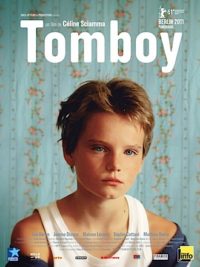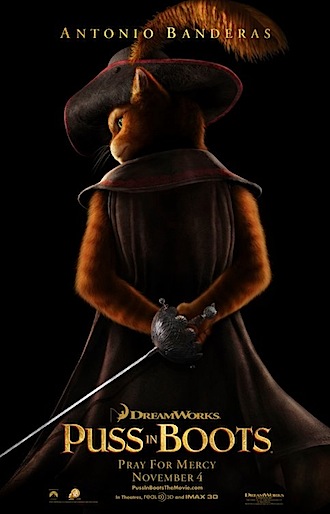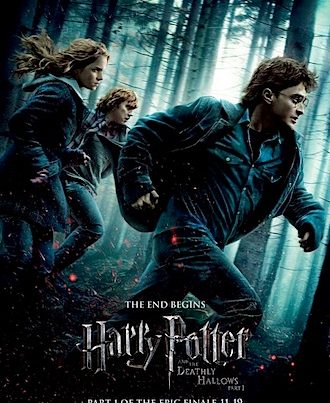 Every so often a film comes along that fits so squarely and neatly inside one’s own personal set of interests and enthusiasms that it is impossible to be objective about it. I try and keep my work here disinterested and arms’ length – clinical, if you will – but, y’know, I’m only human. Just so you know. With that disclaimer out of the way, then, here’s my review of Puss in Boots.
Every so often a film comes along that fits so squarely and neatly inside one’s own personal set of interests and enthusiasms that it is impossible to be objective about it. I try and keep my work here disinterested and arms’ length – clinical, if you will – but, y’know, I’m only human. Just so you know. With that disclaimer out of the way, then, here’s my review of Puss in Boots.
So. Much. Fun. Soooo. Much. Fun. As one of the smart Embassy staff pointed out to me afterwards, Puss (Antonio Banderas) has been basically single-pawedly keeping the Shrek franchise alive for a while so a spin-off was not only likely but necessary. And welcome.
A dashing feline hero – egotistical, narcissistic but with a heart of gold – Puss roams the countryside getting in to trouble with owners of shiny things and owners of lady cats. But he has a dark secret, a shadow, a burden to carry: a tragic miscarriage of justice back in his home town has made him a fugitive determined to clear his name. A chance meeting with childhood best friend Humpty Alexander Dumpty (Zack Galifianakis) offers him a shot at redemption – along with some magic beans that could lead to golden eggs in a castle in the sky.
Full of witty dialogue, cat jokes, visual puns and immaculate comic timing, Puss in Boots is a must-see for cat lovers of all ages. If you are more of a dog person then stay tuned, there’s something for you later on. Before I leave Puss, though, I want to pose you a question. If traditional animators can do such amazing and amusing work with only their mice to work with, why do we need all that new-fangled performance capture technology? Seems increasingly like a solution looking for a problem to me.
 So, let’s assume that non-cat lovers will get a kick out of Puss in Boots. That is called transcending your subject matter and it is a terribly difficult thing to do – particularly with documentary. A good example might be Man On Wire which is ostensibly about tightrope walking and yet it appealed to millions of non-tightrope walkers all over the world. It transcended its subject matter in a way that Jig, about competitors at the 2010 World Irish Dancing Championships, does not.
So, let’s assume that non-cat lovers will get a kick out of Puss in Boots. That is called transcending your subject matter and it is a terribly difficult thing to do – particularly with documentary. A good example might be Man On Wire which is ostensibly about tightrope walking and yet it appealed to millions of non-tightrope walkers all over the world. It transcended its subject matter in a way that Jig, about competitors at the 2010 World Irish Dancing Championships, does not.
If you already have an interest in competitive Irish dancing, then Jig is probably going to be catnip for you. If not, then you’ll be bored rigid – much as I was. I’m old fashioned enough to think that if a film takes up space on our cinema screens I’d expect it to justify itself somehow and on that basis Jig fails where an equally unpromising topic like TT 3D succeeded. It belongs on television – where fans can find it – which is presumably why BBC Scotland paid for it to be made in the first place.
 Red Dog is for the dog lovers among you. It’s based on a novella by Louis de Bernières (Captain Corelli’s Mandolin) which was in turn based on the true story of a famous canine character who spent the 1970s roaming the remote north west of Western Australia – and legend has it even further afield – making friends along the way. The town of Dampier is a company town, hundreds of mostly migrant workers open cast mining iron ore and salt in the brutal Australian sun. Red Dog does a fair job of evoking the uncompromising lifestyle that these men have chosen for themselves but that’s roughly where its qualities start to fizzle out.
Red Dog is for the dog lovers among you. It’s based on a novella by Louis de Bernières (Captain Corelli’s Mandolin) which was in turn based on the true story of a famous canine character who spent the 1970s roaming the remote north west of Western Australia – and legend has it even further afield – making friends along the way. The town of Dampier is a company town, hundreds of mostly migrant workers open cast mining iron ore and salt in the brutal Australian sun. Red Dog does a fair job of evoking the uncompromising lifestyle that these men have chosen for themselves but that’s roughly where its qualities start to fizzle out.
Manipulative is quite a charged word in reviewing circles – after all isn’t all art about provoking a reaction – but I take it to mean the difference between being invited to have an emotional response and one being demanded of you. Red Dog is manipulative. It requires tears and it won’t rest until it has got them.
 Much more subtle, much more open to interpretation, is Céline Sciamma’s quiet little puzzle Tomboy. Ten year old Laure (Zoé Héran) moves with her parents and younger sister to a new town. It’s the summer holidays and while her mum and dad are busy with their grown-up version of settling in, shy Laure tries to find new friends. When she is mistaken for a boy by Lisa (Jeanne Disson) she becomes Mikel and plays along with her new identity until society demands that she can’t simply choose her gender any more.
Much more subtle, much more open to interpretation, is Céline Sciamma’s quiet little puzzle Tomboy. Ten year old Laure (Zoé Héran) moves with her parents and younger sister to a new town. It’s the summer holidays and while her mum and dad are busy with their grown-up version of settling in, shy Laure tries to find new friends. When she is mistaken for a boy by Lisa (Jeanne Disson) she becomes Mikel and plays along with her new identity until society demands that she can’t simply choose her gender any more.
One synopsis I’ve read for the film suggests that Laure becomes a boy to fit in – to avoid embarrassment among her new friends she doesn’t correct them and it soon becomes too late to go back – but it seems to me that it is much more of a conscious choice, an extreme version of the kind of experiments that all children go through. Laure’s attraction to Lisa may be a factor too, but who knows? That’s the strength of Tomboy, it doesn’t hand you everything on a plate or dictate the response it expects you to have. It’s a film about a ten year old that treats you like an adult.
Printed in Wellington’s Capital Times on Wednesday 7 December, 2011.



traditional animators dont use ‘mice’.…they use pencils.
Noted, but forgive me if I leave it in for the pun-potential.
So. Much. Pun. Soooo. Much. Pun.
Where’s the “like” button for comments?